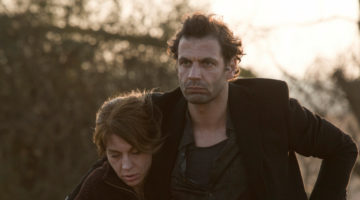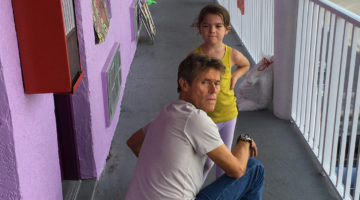TIFF 2012 Review: Amour
When he hears a crash in his apartment, Georges seems to know exactly what is going on. He gets up and rushes to the other room, which in his old age is more a slow amble, and chastises his stubborn, infirmed wife Anna for falling out of the bed and breaking a lamp. The sudden impact is more shocking to the audience, though it shouldn’t be, as an opening sequence in the future finds police discovering her deceased body behind a poorly secured door.
The end of life is inevitable, never so apparent in Amour, a film by Michael Haneke, and winner of the 2012 Palme D’or at the Cannes Film Festival. Jean-Louis Trintignant and Emmaulelle Riva give stirring performances as elderly, affluent French couple. They are happy together still this late in life, enjoying each other’s company every minute, whether it is out at musical performances or playfully bickering at the breakfast table.
When Anna falls ill, both are forced to start to confront a life in which their routine is changing, their abilities are limited, and their time together is limited.
The film moves like Georges, slow and steady, heading towards a clear end the way it wants to. It is sad throughout, and like Georges and Anna, we the audience have time to figure out how to best prepare. We are brought into their world through superb direction and compelling acting, with their beautiful old apartment becoming our home for a couple hours.
The triumph of direction, though, is also at times a curse, as the movie feels longer than it is, and the tempered pace, one that brings you in, can too allow you to wander. It is a deeply personal film, with great attention to detail, and the thoughts and feelings of each of the two characters are easily understood. Because of this though, it is easy to project one’s own experiences and feeling onto the screen, and every individual watching will be affected in a slightly different way, coming to terms with death at various times through various means.
It is harrowing to watch the elderly pair become more distant and lose patience, imagining better times and reminiscing about the freedom they had and are now losing, as day by day their discomfort, and ours, steadily grows towards a quiet and somber end.
It is a strange paradox. I suppose like Georges, we have time to accept the death of Anna, yet our ability to do so is far easier than his. Anna is aware internally of what is coming, but she is stubborn and chooses to mostly ignore the chances in her physically abilities. She does not want Georges sympathy, or ours. Georges would not want it either, yet that would be the prevailing sentiment as the film transpires. We are sad for the man who is to be left living, not the woman dying. It would seem surely a worse fate, yet like Anna, he is stubborn and wants little help in dealing with it.
And so the film moves onward, painfully slow and slowly painful. It is filled with sadness, yet there is nowhere for that sadness to go.
[star v=35]






